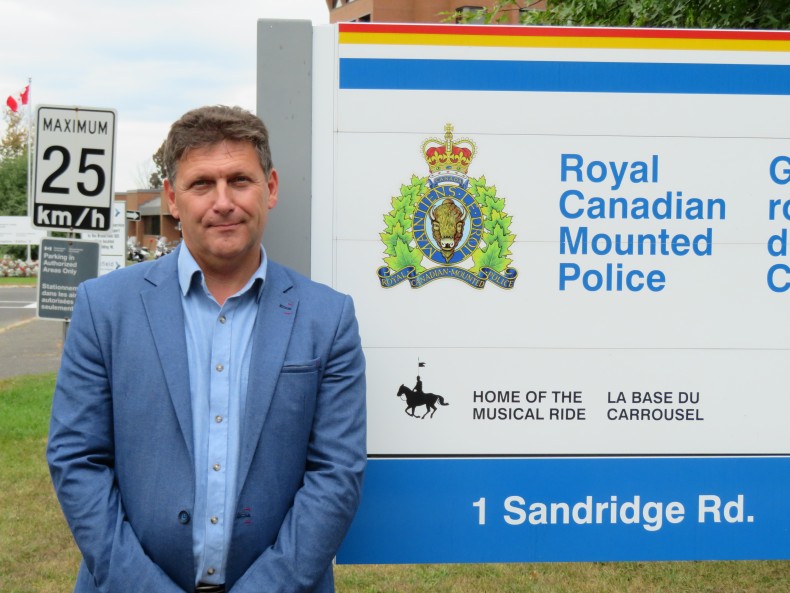
Action Plan for Implementing the Strategy for the Deoccupation and Reintegration of Crimea. What has changed?
On April 4, 2023, the Cabinet of Ministers of Ukraine (CMU) approved Order No. 288-r,...
03 May 2023
The EU peacekeeping mission in Ukraine – what exactly should it do, and with whom cooperate? How one can rely on the support of civil society? Are the principles of the EU peacekeeping policy compatible with the principles of transitional justice for Ukraine? What might be the policy of cooperation of European peacekeepers with authorities and international donors?
These difficult and rather controversial issues were the basis of the so-called Ukrainian Session, which took place on October 3, 2017, as part of the annual master class for future strategic advisers to the EU peacekeeping missions (Ottawa, Canada). Such master classes have been launched since 2010 by the National Police of the Netherlands together with the Geneva Centre for the Democratic Control of Armed Forces (Geneva, DCAF). Participants may be persons delegated by states, at the level of superintendents of the police with relevant experience, training, and motivation.
This fall, representatives from 11 countries (Australia, Belgium, the United Kingdom, Denmark, Canada, the Netherlands, Germany, Norway, France, Switzerland) gathered at the Canadian Police College to attend the 2017 Master Class. Oleh Martynenko, Head of the UHHRU’s analytical direction, based on his own peacekeeping experience, reviewed the current donor assistance to Ukraine from the point of view of the introduction of transitional justice in Ukraine.

Participants were surprised by the fact that in 2017, there are 541 projects of international technical assistance with a budget of $1.5 billion in Ukraine.
Most of them are being implemented by the European Union (320 projects), by individual states (148) and by international organizations (93). Among all donors, the largest number of projects are run by the United States (86), OSCE (36), European Bank for Reconstruction and Development (30), Germany (23), Canada (15), and UNDP (13). A part of donor aid in 2016 was aimed at national security and defense – more than €457 million; the system of law enforcement agencies – more than €33 million.
Ukrainian donors 2017-Martynenko
With regard to the civil security sector, donor assistance received between 2014-2020 can be divided into the following thematic areas:
Oleh Martynenko draw the attention of police experts that in general 63% of all donor money are targeted at the security sector of Ukraine (Ministry of Defense, Ministry of the Interior, Security Service of Ukraine). In 2018, the security sector should receive $86,838, which will be an important resource for reforming post-Soviet approaches to the work of law enforcement agencies and approaching them to European procedures aimed at protecting the population during the armed conflict.
However, according to Mr. Martynenko’s calculations, the situation in security sector is fundamentally different: 95.6% of all international aid is directed to the authorities. At the same time, the role of NGOs cannot be overemphasized – civil society experts initiate progressive legislative initiatives, analyze the critical aspects of the security sector’s activities, pay attention of donors to the most promising directions and monitor the process of reforms.
As a result, the leadership of the police of 11 states was focused on more active interaction with the non-governmental sector of Ukraine and more rigorous work with donor aid related to the reform of the security sector and the introduction of transitional justice in Ukraine.
The “Masterclass 2017” Honorary Award from the Canadian Police College was received as a recognition of the expert level of UHHRU and went to Kyiv.
If you find an error on our site, please select the incorrect text and press ctrl-enter.

On April 4, 2023, the Cabinet of Ministers of Ukraine (CMU) approved Order No. 288-r,...
03 May 2023

Since the beginning of the full-scale Russian invasion of Ukraine, about 150,000 civilians who fled...
17 October 2022
Within the framework of Crimea Academic Forum – 2022, Taras Shevchenko National University of Kyiv...
15 September 2022
Taras Shevchenko National University of Kyiv and its student community in cooperation with leading Ukrainian...
13 September 2022